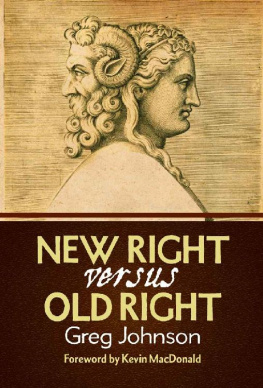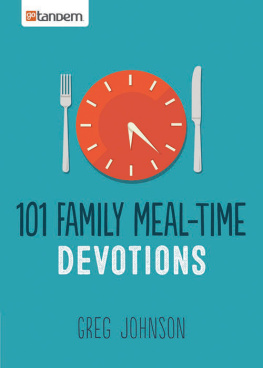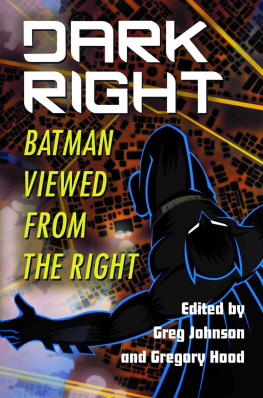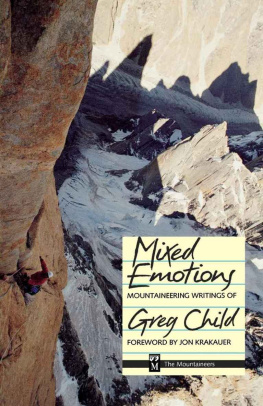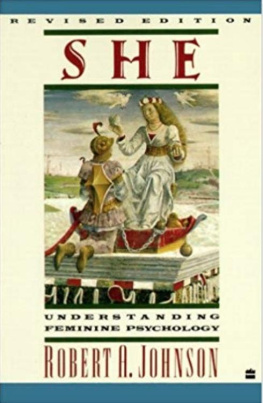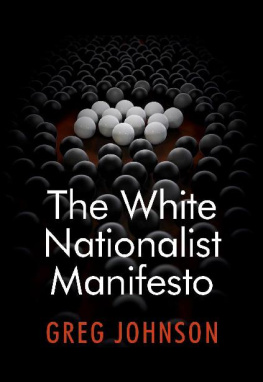Greg Johnson - New Right vs. Old Right
Here you can read online Greg Johnson - New Right vs. Old Right full text of the book (entire story) in english for free. Download pdf and epub, get meaning, cover and reviews about this ebook. year: 2014, publisher: Counter-Currents Publishing, genre: Politics. Description of the work, (preface) as well as reviews are available. Best literature library LitArk.com created for fans of good reading and offers a wide selection of genres:
Romance novel
Science fiction
Adventure
Detective
Science
History
Home and family
Prose
Art
Politics
Computer
Non-fiction
Religion
Business
Children
Humor
Choose a favorite category and find really read worthwhile books. Enjoy immersion in the world of imagination, feel the emotions of the characters or learn something new for yourself, make an fascinating discovery.
- Book:New Right vs. Old Right
- Author:
- Publisher:Counter-Currents Publishing
- Genre:
- Year:2014
- Rating:3 / 5
- Favourites:Add to favourites
- Your mark:
- 60
- 1
- 2
- 3
- 4
- 5
New Right vs. Old Right: summary, description and annotation
We offer to read an annotation, description, summary or preface (depends on what the author of the book "New Right vs. Old Right" wrote himself). If you haven't found the necessary information about the book — write in the comments, we will try to find it.
New Right vs. Old Right — read online for free the complete book (whole text) full work
Below is the text of the book, divided by pages. System saving the place of the last page read, allows you to conveniently read the book "New Right vs. Old Right" online for free, without having to search again every time where you left off. Put a bookmark, and you can go to the page where you finished reading at any time.
Font size:
Interval:
Bookmark:
N EW R IGHT VS. O LD R IGHT
& O THER E SSAYS
by
G REG J OHNSON
F OREWORD BY
K EVIN M AC D ONALD
Counter-Currents Publishing Ltd.
San Francisco
2013
Copyright 2013 by Greg Johnson
All rights reserved
Foreword 2014 by Kevin MacDonald
Cover design by Kevin I. Slaughter
Published in the United States by
C OUNTER- C URRENTS P UBLISHING L TD.
P.O. Box 22638
San Francisco, CA 94122
USA
http://www.counter-currents.com/
Hardcover ISBN: 978-1-935965-59-6
Paperback ISBN: 978-1-935965-60-2
E-book ISBN: 978-1-935965-61-9
Library of Congress Cataloging-in-Publication Data
Johnson, Greg, 1971-
[Essays. Selections]
New right vs. old right & other essays / by Greg Johnson : foreword by Kevin MacDonald.
1 online resource.
Includes bibliographical references and index.
Description based on print version record and CIP data provided by publisher; resource not viewed.
ISBN 978-1-935965-61-9 (epub) -- ISBN 978-1-935965-59-6 (hardcover : alk. paper)
1. Conservatism--Philosophy. 2. Conservatism--United States. 3. Right and left (Political science)--United States. 4. Fascism. 5. National socialism. 6. Jewish nationalism. 7. White nationalism--United States. I. Title. II. Title: New right versus old right and other essays.
JC573
320.52--dc23
2013024587
C ONTENTS
Politics & Metapolitics
Disputed Questions
Building a Movement
Distractions & Dead Ends
F OREWORD
K EVIN M AC D ONALD
Perhaps its best to start off with what New Right vs. Old Right is not. Greg Johnson does not assail his readers with statistics to prove the Jewish role in the decline and impending fall of whites in America and elsewhere. He does not discuss the corruption of the media and the academic world and how they got that way. He does not discuss data on race differences in IQ and criminality to explain the behavior of non-white America. He doesnt aim to refute the current mantra that race is nothing more than a social construct designed to provide white people with unearned privilege.
Those intellectual battles are over, and we have won, although the mainstream media and academic world continue to promulgate cultural Marxist blather as if it were a set of truths set in stone. The starting point for NRvOR is that the media, the academic world, and the political process are hopelessly corrupt. So where do we go from here?
Greg Johnsons basic point is that we must work to create a metapolitics of explicit white identitythat is, a movement that will develop the intellectual and cultural foundations for effective White Nationalist politics in North America, so that we can ultimately create a white homeland or homelands on this continent.
Greg is one of the reasons why I think this is a feasible project. A very great reason for optimism is that there are so many intelligent, well-spoken people who get itwho understand that whites around the world are in decline and that there will be dire consequences if whites are unable to establish white homelands. People like Greg Johnson are part of a hugely important trend. I have recently met a great many young, intelligent, well-educated, and well-spoken people at conferences dedicated to activism on behalf of the interests of white Americathe exact opposite of the image of uneducated, violent males sporting swastikas and missing a couple of teeth that has been so carefully crafted by our hostile elites.
Despite growing up with a constant barrage of multicultural, anti-white propaganda beginning in elementary school, these individuals understand that at this point America is an unfolding disaster as whites are increasingly displaced throughout the economic and political spectrum. They are acutely aware that whites are a minority of births in America and that whites will be a minority within their lifetimesa minority with diminished prospects and increasingly victimized by the non-white majority, many of whom retain historical grudges against white America. It is very likely that the America of the future will be beset with chronic conflict among different racial/ethnic groups. The idea that America or the West can avoid such conflicts as their societies become ever more factionalized is magical and utopian.
The goal, therefore, is not, a supremacism that is in any way invidious. Rather, the best way to ensure peace and good will among peoples and preserve human racial, cultural, and religious diversity is to give each distinct group a homeland where it can live and develop according to its own distinct nature and destiny.
This is an attitude that seems to me to be pervasive in the white advocacy movement. It at once defuses a very effective bit of rhetoric of the Leftrepeated with predictable regularity by organizations like the Southern Poverty Law Center. We are white advocates, people who, as Greg phrases it in several places following Michael Polignano, take our own side in issues of racial/ethnic conflict. And in taking our own side, we are doing exactly what racial/ethnic groups have done from time immemorial. No one accuses the Koreans of Korean supremacism for adopting policies aimed at retaining Korean demographic and cultural predominance. And imagine the horror by Western elites at a proposal to flood African countries with whites so that native Africans cease to be a political majority.
Make no mistake about it. The policies that are making whites minorities in lands they have dominated for hundreds or (in the case of Europe) thousands of years are not driven by utopian dreams of a raceless future, except among gullible, intimidated whites. The non-whites who are so enthusiastically embracing the decline of white political and cultural power are driven by hatred toward whites as a people and as a culture. This is a major theme of my writing on Jewish influence, and apparent as well in a host of non-white intellectuals and activists.
Greg Johnson received his Ph.D. in philosophy, and it shows. His forte is the well-developed argument presented in a lucid, easily understood style. There will be no complaints about this book being filled with turgid prose. And I cant find any major disagreements.
I was particularly struck by several points. For example, unlike the European New Right, Greg is an advocate of white racial nationalism:
insofar as the breakdown of European national identities and the blending of European stocks in our North American context forces us (1) to give greater place to biological race and other deep roots of common European identity, and (2) to put greater emphasis on the Jewish question, given the role of American Jewry in promoting anti-white policies both in the United States and in white countries worldwide.Right. As a biologist, there is always the tendency to see matters like race as a decontextualized matter. DNA, after all, is DNA. But American whites are indeed a very intermixed lota successful example of a European melting pot. In effect, we have created a new biological reality not present in any European country.
Nevertheless, we must remember that Europeans are in general closely related biologically, particularly in the north and east of Europe, as recent data continue to show. Indeed,
typical pairs of individuals drawn from across Europe have a good chance of sharing long stretches of [identical genes] by descent, even when they are separated by thousands of kilometers. We can furthermore conclude that pairs of individuals across Europe are reasonably likely to share common genetic ancestors within the last 1,000 years, and are certain to share many within the last 2,500 years.The white race is indeed a biological as well as a cultural reality. This biological reality forms a powerful basis for a scientifically based understanding of a commonality of interests wherever whites are living, whether in Europe or in the European diaspora.
Next pageFont size:
Interval:
Bookmark:
Similar books «New Right vs. Old Right»
Look at similar books to New Right vs. Old Right. We have selected literature similar in name and meaning in the hope of providing readers with more options to find new, interesting, not yet read works.
Discussion, reviews of the book New Right vs. Old Right and just readers' own opinions. Leave your comments, write what you think about the work, its meaning or the main characters. Specify what exactly you liked and what you didn't like, and why you think so.

